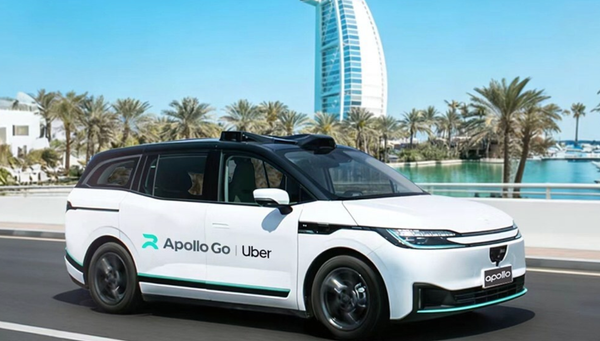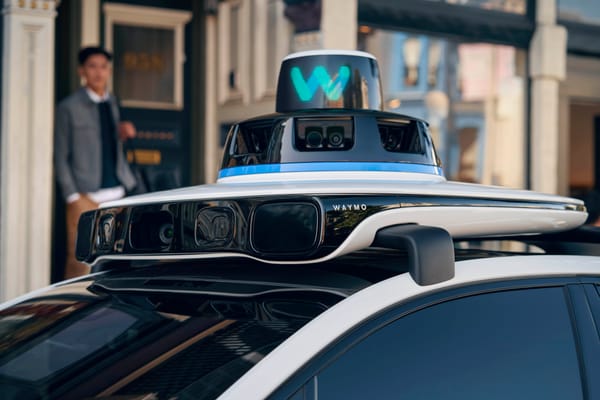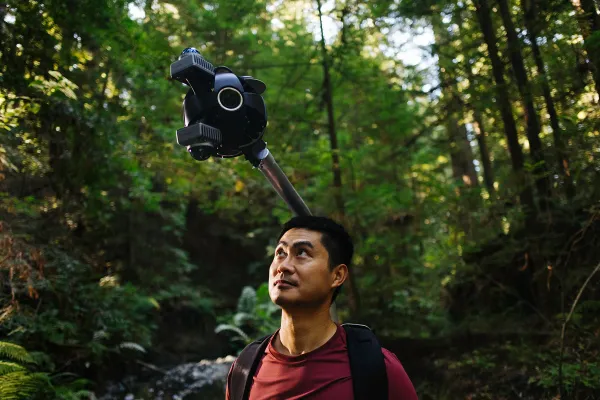📬 Remix Reality Weekly: Spin-outs and sweeps

Your free Friday drop of spatial computing updates—plus what Remix Reality Insiders unlocked this week.
🛰️ The Signal
This week’s defining shift.
Modularity is emerging as the fast lane to autonomy.
Rather than relying on purpose-built systems, a growing number of companies are layering intelligence onto existing machines through retrofit kits, bolt-on software, or upgradable platforms. This modular approach isn’t just flexible. It reduces friction, leverages what’s already in the field, and speeds adoption by meeting industries and customers where they are.
👉 Get the full insight in this week’s Insider drop.
📡 Weekly Radar
Your weekly scan across the spatial computing stack.
🤖 Augmentus Secures $11M to Expand No-Code Robotic Systems
- Augmentus builds no-code software that programs robots to automate welding and surface finishing in factories with constantly changing parts.
- Why this matters: Robotics won’t scale if it requires specialists. Augmentus lowers the barrier with no-code software that makes automation accessible to the teams already on the floor.
🩺 Robot Completes First Autonomous Gallbladder Surgery on Lifelike Model
- A Johns Hopkins robot successfully carried out a full gallbladder removal without human control.
- Why this matters: Spatial computing is rapidly reshaping the operating room, enabling surgeons to perform procedures remotely and access medical data hands-free.
🎓 Pearson Opens Innovation Hub for AI and Immersive Learning R&D
- Pearson has launched “Pearson Lab” to develop scalable learning solutions using generative AI and immersive technologies.
- Why this matters: Pearson’s new lab brings together researchers and industry partners to explore how emerging technologies can unlock new tools and methods for learning.
✈️ Lufthansa Cargo Develops Virtual Training for Aircraft Loading Operations
- Lufthansa Cargo is developing a VR training program to help aircraft loading supervisors learn safety and handling procedures.
- Why this matters: VR was designed for training, and Lufthansa’s adoption demonstrates how it can provide a more flexible, cost-effective, and eco-friendly alternative to traditional methods, requiring only a headset and some space.
🧟 TRELLIS Launches in Foundry Labs, Bringing Generative 3D to More Creators
- TRELLIS generates editable 3D models from text or image prompts using Microsoft’s new SLAT format. It is now available to more creators in the Azure Foundry Labs portal.
- Why this matters: Generative 3D is evolving quickly, and tools like TRELLIS remove the biggest barrier, asset creation, helping developers go from idea to prototype faster and potentially secure funding sooner.
🔊 Meta Brings XR Audio SDK to Wwise, Enhancing Mixed Reality Workflows
- Meta's spatial audio SDK is now available as a plug-in for Wwise, supporting immersive sound design in mixed reality apps.
- Why this matters: Spatial audio is essential for XR, and Meta’s integration with Wwise makes it more accessible while pushing the industry toward richer, more personalized sound experiences.
📷 RealSense Spins Out from Intel with $50M to Scale Vision AI for Robotics and Biometrics
- RealSense has spun out from Intel and raised $50 million in Series A funding from Intel Capital, MediaTek Innovation Fund, and others.
- Why this matters: RealSense helped pioneer computer vision, and now, with fresh capital and spatial computing gaining steam, it’s poised to scale just as the market catches up.
🚗 Tobii Earns Approval for Single-Camera Vehicle Sensing Platform
- Tobii’s single-camera interior sensing platform will go into production with a premium European automaker starting in late 2025.
- Why this matters: Certification in Europe shows that even traditional cars are embracing spatial computing, using sensors to boost safety, comfort, and in-cabin experience.
🎬 Meta Projects Sweep Emerging Media Emmy Nominations
- All three nominees for Outstanding Emerging Media Program were backed by Meta and created for the Meta Quest platform.
- Why this matters: XR recognition at the Emmys marks a big step toward mainstream acceptance, with this year’s VR and MR nods highlighting a clear win for Meta’s broader content push.
🌀 Tom's Take
Unfiltered POV from the editor-in-chief.
Every time I see a viral robot video now, I pause and ask: Is this thing actually real?
Not in the CGI sense, we’ve mostly moved past that. I mean, is the robot autonomous? Is it truly acting on its own? Or is someone just off-camera with a joystick?
Unitree’s humanoid robots are the latest to trigger this response. You may have seen one in particular, "Jake the Rizzbot", strutting down the streets of West Village with a pride flag or popping up in Austin wearing a cowboy hat, dancing, waving, and striking up conversations. The clips of Jake are racking up millions of views and flooding my TikTok algorithm. And while the robot appears to be running on its own and responding to questions, what’s often missing in these videos is the full context. This bot is being remotely controlled.
It reminds me of when Tesla first “unveiled” its Optimus robot on stage…by having a human in a suit do a dance routine. Or when clips of its Optimus robots “bartending” at the CyberCab event went viral, only to be revealed that they were being teleoperated.
I get it. This ambiguity is part of the moment we’re in. We’ve spent so long imagining intelligent machines that now, when one actually shows up in the real world, we want to believe it’s the real deal. We want to believe we’re living in the future. But believing too easily risks eroding public trust, especially when the line between demo and deception gets too thin.
The truth is, real progress is already happening. Fully autonomous robots are out in the world, quietly doing real work, from hospital deliveries to heavy machinery. But these staged performances risk blurring the line. When some robots are just wizards behind the curtain and others are the real thing, it gets harder for people to know what to believe. And that disbelief threatens to overshadow the breakthroughs that actually matter.
That all being said, there’s something undeniably thrilling about watching the fiction become fact, even if someone’s holding the controller just out of frame.
🔒 What Insiders Got This Week
This week’s Insider drop included:
- 🧠 Reality Decoded: The great face race has begun, as every major tech company is reported to have multiple headworn devices on the horizon.
- 🔮 What’s Next: Wearables as performance amplifiers; spatial tech is scaling in healthcare; and digital twins are becoming real-time decision engines.
👉 Unlock the full drop → Upgrade to Insider
🚀 Thanks for being a Remix Reality subscriber!
Know someone who should be following the signal? Send them to remixreality.com to sign up for our free weekly newsletter.
📬 Make sure you never miss an issue! If you’re using Gmail, drag this email into your Primary tab so Remix Reality doesn’t get lost in Promotions. On mobile, tap the three dots and hit “Move to > Primary.” That’s it!





